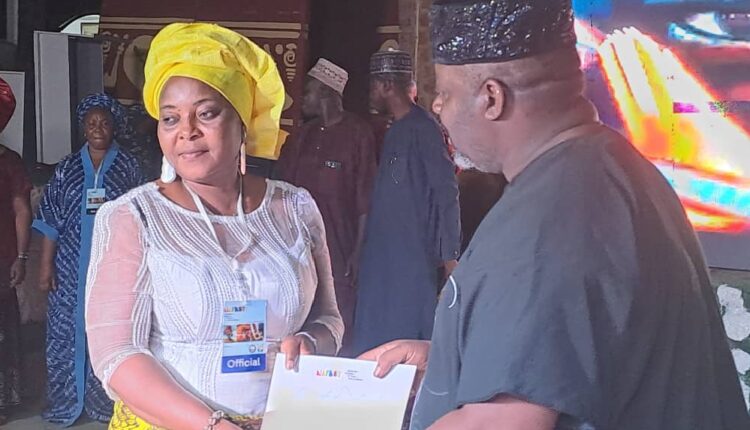The 36th edition of the National Festival of Arts and Culture (NAFEST), Nigeria’s premier cultural event, has concluded in grand style, with Bayelsa State emerging as the overall winner.
The week-long festival, hosted in the Federal Capital Territory (FCT), brought together participants and dignitaries from across the nation to celebrate Nigeria’s rich and diverse cultural heritage under the theme “Connected Culture.”
NAFEST 2024 featured an array of Competitive and Non-Competitive events, offering a vibrant platform for cultural expression, exchange, and unity. Designed as a cultural Olympics, the festival highlighted the shared values and unique traditions that bind Nigeria’s people.
According to a statement from Dr. Dennis Olofu, Head of Media, National Council for Arts and Culture on Monday, participants showcased their talents across a wide range of activities, including:Children’s Storytelling and Traditional Board Games (Ayo), which brought historical narratives and strategic gameplay to life.
Traditional Wrestling and Dambe Boxing, displaying strength and skill in indigenous sports.
Archery, demonstrating precision, and Sing-Off Naija and Dance-Off Naija, celebrating musical and dance artistry.
The Jollof Wars, where culinary experts competed to create the nation’s best-loved dish.
Educational contests like the Culture Quiz for Secondary Schools and the Children’s Essay Writing Competition, fostering cultural literacy among young Nigerians.
The festival also emphasized the importance of local materials and creativity in contemporary design through events such as the National Competition on the Use of Nigerian Indigenous Materials for Interior Decorations and the Children’s Arts & Crafts Competition.
In non-competitive activities, NAFEST offered enriching cultural showcases, including:
The Official Opening and Closing Ceremonies, which featured performances and dignitaries celebrating the festival’s achievements.
- Advertisement -
The premiere of the play “Ibe Ji Mma”, which added theatrical brilliance to the festivities.
Platforms like the Creative Economy Town Hall and the Creative Leap Accelerator Programme (CLAP) and the free skills acquisition training, nurtured entrepreneurship in the arts and fostered creative talent.
The competitive spirit of NAFEST shone brightly, with impressive performances across disciplines:
Bayelsa State led in Children’s Arts and Crafts and Archery, while Ekiti State excelled in the Swag Show and Children’s Essay Competition.
The Culture Quiz saw Taraba State taking first place, showcasing exceptional knowledge of Nigeria’s heritage.
Ekiti and Lagos secured second and third overall positions, respectively, reflecting the depth of talent across the states, while Nasarawa state took home the primed trophies for Jollof Wars and Dance-Off, capping it up with silver and bronze in dambe and Children’s Storytelling respectively.
Mr Obi Asika, Director General of the National Council for Arts and Culture, described NAFEST as a unifying celebration of Nigeria’s cultural wealth.
“NAFEST is more than an event; it is a dynamic platform that fosters unity and cultural pride,” he stated. “With over five decades of existence, it has proven to be an indispensable bridge for interaction among Nigeria’s diverse peoples. This year’s theme, ‘Connected Culture,’ captures our mission to strengthen the bonds that unite us through our shared heritage.”
Asika expressed gratitude to all participating states and partners, reaffirming NAFEST’s role as a springboard for cultural and economic advancement.
The festival’s benefits extend far beyond the stage. NAFEST fosters national cohesion, encourages the preservation of cultural heritage, and promotes local tourism. The event’s emphasis on entrepreneurship and the creative economy provides opportunities for artisans and young talents to thrive, while its educational components instill cultural appreciation in the next generation.
Additionally, the vibrant Arts and Crafts Cultural Market serves as a hub for showcasing indigenous products, contributing to economic growth and cultural diplomacy.
As the curtains fall on the 36th edition of NAFEST, the festival leaves a legacy of unity, pride, and inspiration, proving once again that Nigeria’s cultural diversity is its greatest strength.




Comments are closed.